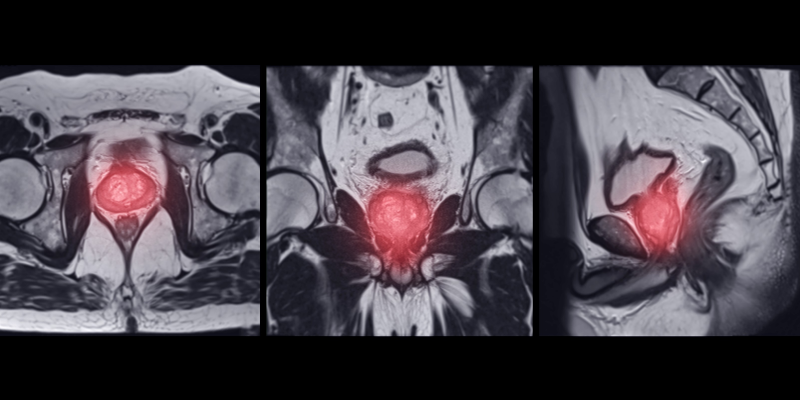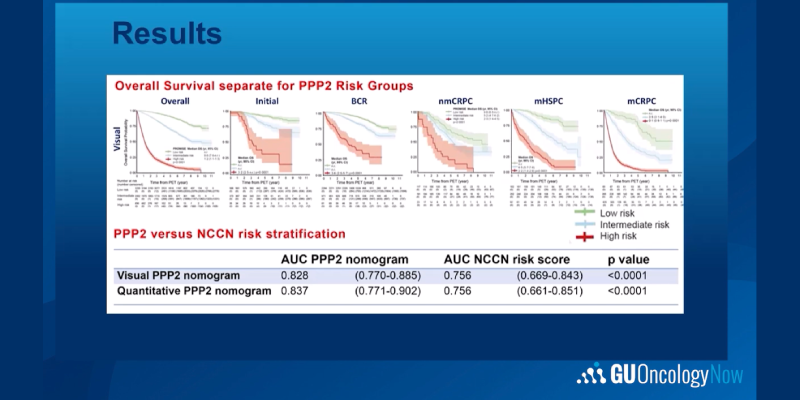Prostate Cancer Diagnostics
Advertisement
Preliminary trial data suggests that 18F-DCFPyL PSMA PET/CT combined with mpMRI may improve csPCA detection over MRI alone.
Researchers investigated the use of PSMA PET-CT to determine treatment options for patients with biochemical failure in PC.
18F-fluciclovine PET detected disease in more than half of the study’s patients with BCR and negative PSMA PET results.
The use of MRI-based monitoring can aid in the avoidance of repeat biopsies, and reduce the chances of undergoing surgery.
John P. Sfakianos, MD, discusses the history and use of ctDNA in the GU oncology field.
Maximizing Benefits and Minimizing Harm: Reviewing AUA Guidelines on Prostate Cancer Early Detection
Dr. Salami explains how updated guideline approaches shared decision-making in higher-risk groups.Dr. Hong reviews relevant key findings from clinical trials for oligometastatic disease.
Dr. Hong reviews the criteria used to determine which patients may benefit from MDT.
Dr. Chu highlights how PSMA PET is transforming perioperative prostate cancer care, including improving surgical precision.
Dr. Hope evaluates PSMA PET vs SPECT imaging for tracking therapy response in prostate cancer.
Dr. Fendler reviews a multi-center study that used prognostic nomograms to risk-stratify patients based on OS.
Dr. Calais provides an overview of this year's PSMA and Beyond conference agenda.
Dr. Emmett discusses the Co-PSMA trial, comparing ⁶⁴Cu-SAR-bisPSMA and ⁶⁸Ga-PSMA-11 for detecting prostate cancer ...
Germline genetic testing is underused for patients with prostate cancer, despite many being eligible for the procedure.
Patients with metastatic PCa are recommended to undergo both germline and somatic DNA sequencing using panel-based assays.
Expert panel discusses diagnostic criteria, precision medicine, and PSMA imaging in managing metastatic prostate cancer.
The FDA's Fast Track Designation enables expedited development of 64Cu-SAR-bisPSMA for recurrent prostate cancer imaging.
Dr. Sanchez-Salas comments on whether PSMA PET is useful for determining optimal candidates for focal therapy.
Dr. Kaouk presented on the benefits of surgery for managing biochemically recurrent prostate cancer post-radiation.
Dr. Thompson, Jr. highlights his recently published large dataset of long-term complications of prostate cancer treatment.




















 © 2025 Mashup Media, LLC, a Formedics Property. All Rights Reserved.
© 2025 Mashup Media, LLC, a Formedics Property. All Rights Reserved.